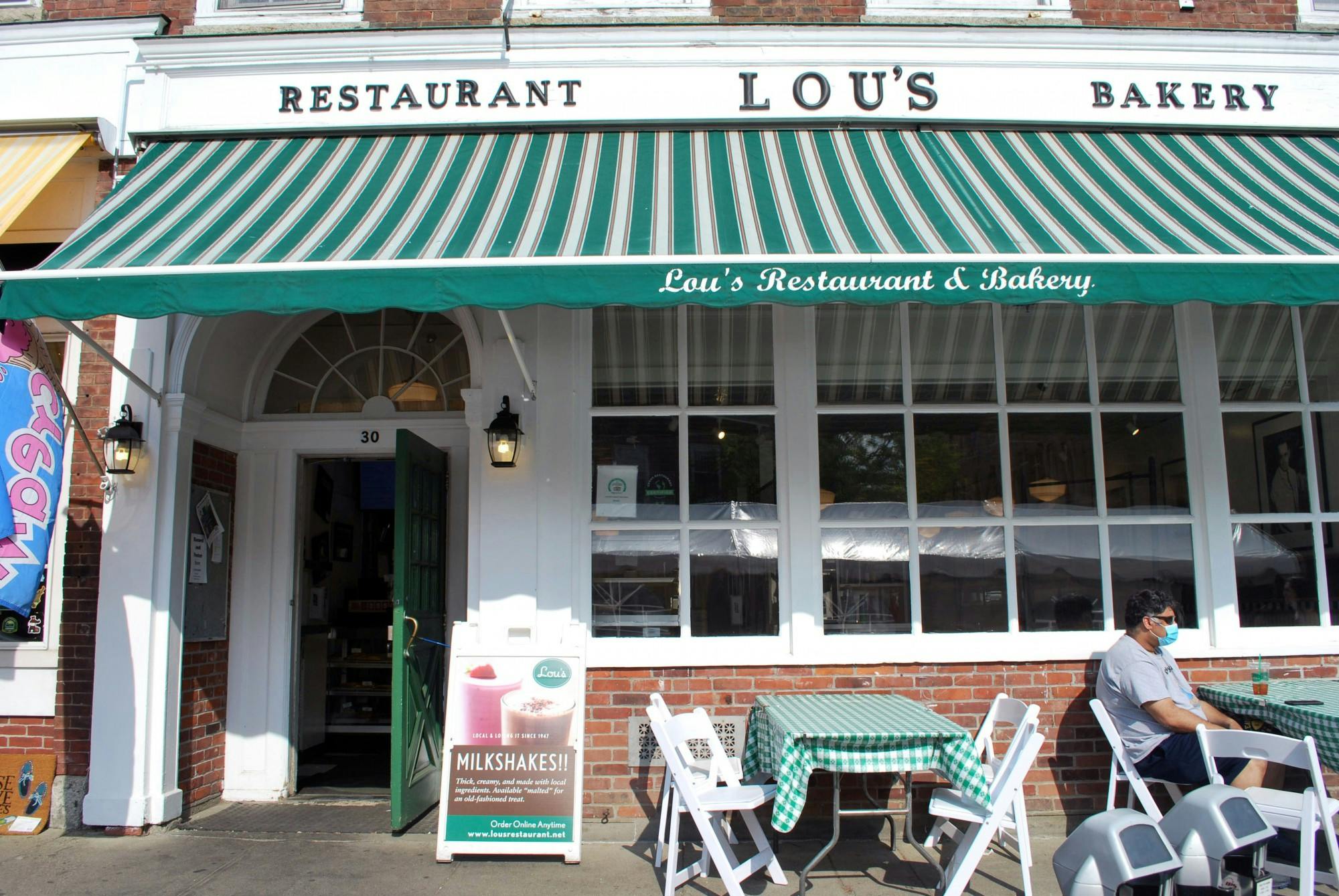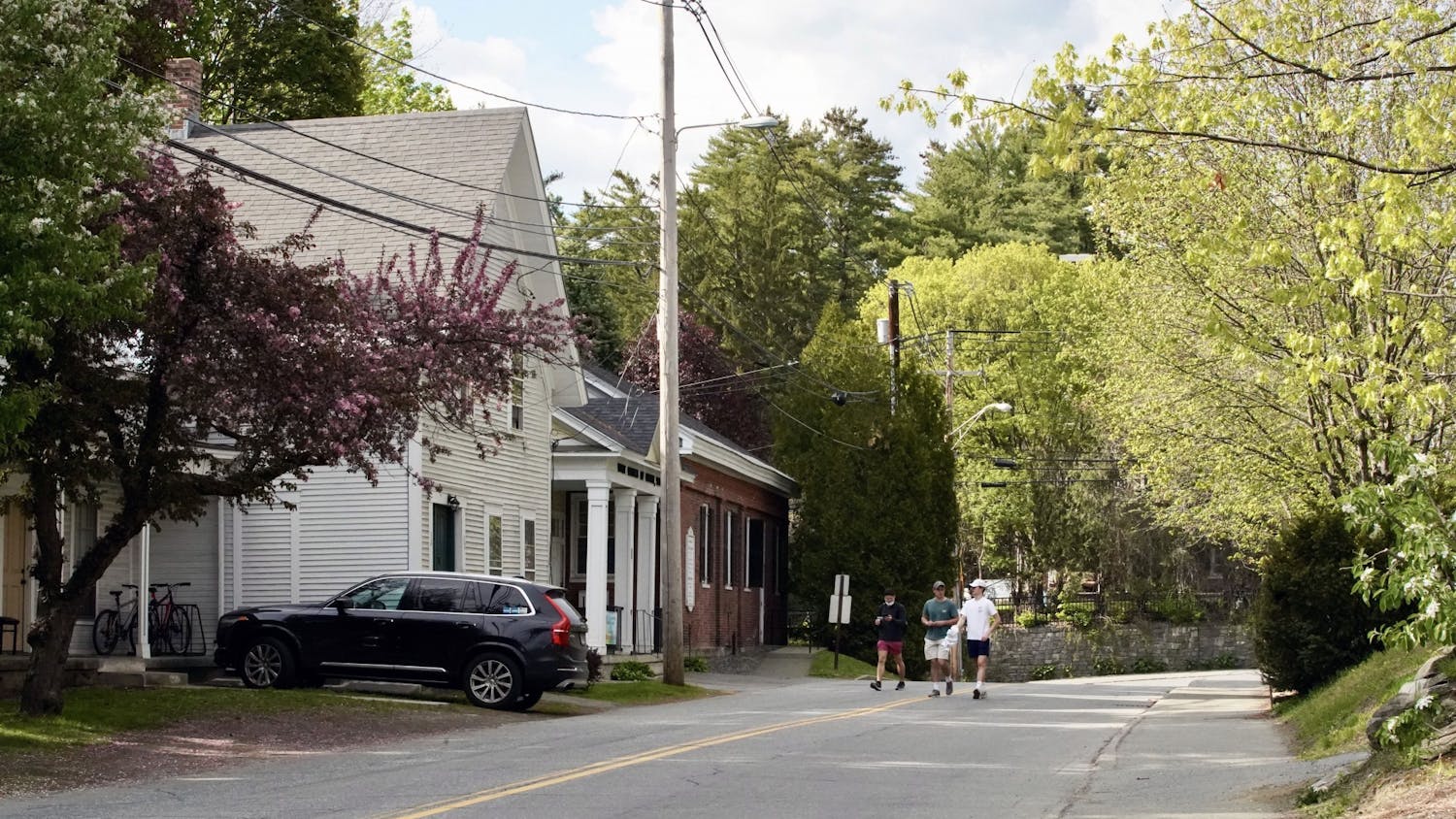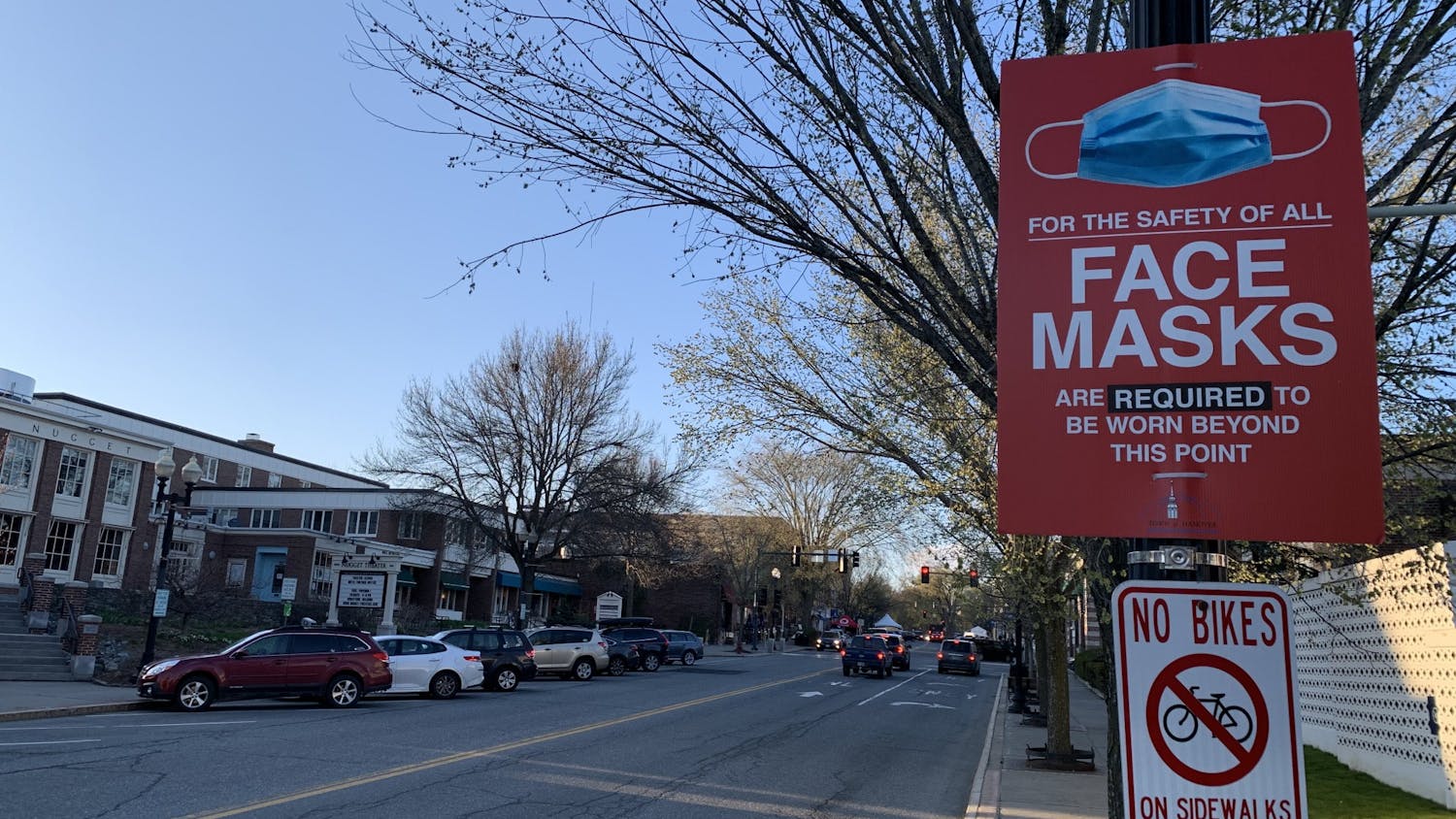This article is featured in the 2021 Spring special issue.
The COVID-19 pandemic has wrought tremendous change on the business landscape in Hanover, forcing restaurants and retailers to grapple with shutdowns, mask mandates and capacity restrictions. Businesses that managed to stay afloat over the past year, however, may begin to see a return to normalcy amid low COVID-19 case counts and changes in Centers for Disease Control and Prevention guidelines, Hanover town manager Julia Griffin said.
“The good news is that downtown Hanover is doing pretty well,” Griffin said. “…People are coming back to their offices full time. Having more bodies downtown patronizing our restaurants, shopping at lunch time and parking is a good sign that normalcy is returning.”
Griffin said the town measures foot traffic in downtown Hanover by parking revenues, which in the past two weeks alone have returned to 50% of the normal amount.
Upper Valley Business Alliance executive director Tracy Hutchins said the entire Upper Valley has handled the pandemic well and will continue to rebound during the summer. She added that businesses that were able to shift to a digital model had an advantage over those that continued to rely on foot traffic.
According to Griffin, the businesses that had the “acumen” to react swiftly to changes in state guidelines and customer flows are emerging from the pandemic, highlighting “the amazing amount of revising, revamping and rethinking” they underwent to outlast the pandemic.
Griffin added that while the town saw a few restaurants close permanently over the past year, these closures were not directly attributable to the pandemic.
“They were restaurants that were already underperforming … and the pandemic was just the final nail in the coffin,” Griffin said.
Owner and CEO of Lou’s Restaurant Jarett Berke Tu’17 said the move to a delivery-based model has helped his business move forward. Although delivery is not profitable for Lou’s — primarily due to the high cost of drivers and lower-margin products — Berke said it allowed him to keep his staff busy and employed.
“We never laid anyone off through [the pandemic],” Berke said. “Now we're in a really strong position. A lot of other restaurants are struggling to hire their people back, struggling to get back to where they were. We still have much of the same crew here, and we're in a good shape as we're rounding the final corner.”
As the pandemic subsides, Berke said he is focused on increasing profits by prioritizing efficient service, high-quality food and dine-in customers.
In addition, Lous, Murphy’s on the Green and Boloco have banded together to form a delivery service called the Upper Valley Eateries and Restaurants — UVER, for short — which will eliminate the need for third party apps like Grubhub and DoorDash, according to Murphy’s owner Nigel Leeming. The group hopes to launch UVER before the beginning of fall term.
According to Boloco co-founder John Pepper ’91 Tu ’97, UVER will employ an independent pool of drivers shared among the three restaurants, minimizing the variability in delivery traffic that different restaurants experience throughout the day.
“Hopefully, we manage the demand across multiple restaurants, better than we’re able to do it alone, [eliminating instances when] some drivers are absolutely out-of-their-mind busy, can't keep up with the orders, while someone across the street is absolutely dead,” Pepper said.
Pepper emphasized the importance of collective action to overcome common challenges.
“[UVER has] been a silver lining of the pandemic, just realizing we may be better served doing this together,” Pepper said. “ … It doesn't make sense for all of us — delivering individually and competing as opposed to joining forces as a community.”
Berke said he hopes UVER will keep “big, ugly businesses” from entering Hanover and “money in the community,” noting the outsized effect the pandemic has had on small businesses.
“Unfortunately, I think [the pandemic] has made big businesses a lot stronger,” Berke said. “Companies like Amazon and Walmart and Grubhub really benefited from the pandemic, whereas many small businesses have not.”
Per the town’s COVID-19 guidelines, Lou’s currently has 30% of its total indoor capacity open for seating, which Berke described as “pretty limited.” However, he noted that the restaurant has reopened outdoor dining as of a couple weeks ago, and currently seats its typical number of tables.
During the pandemic, the town also replaced parking spaces on Main Street with restaurant outdoor seating to accommodate for the loss of indoor seating. Griffin said the outdoor spaces for dining will remain and be incorporated into an ongoing sidewalk reconstruction project, but noted the controversy of eliminating parking.
“Parking is typically in big demand, and to sacrifice parking would be controversial,” Griffin said. “So we’ll figure it out. We want to take the time to make sure we’ve heard from all sorts of groups of folks before we pull the pin on something. But outdoor dining vibe is a great vibe.”
Amber Boland, the owner of Blue Sparrow Kitchen in Norwich and The Nest, which is currently under construction in Hanover, said she is considering her employees’ well-being while deciding where to adopt more relaxed COVID-19 guidelines.
Although she has shuttered indoor seating, she said her employees are becoming more comfortable with the idea of opening the interior of her restaurants as they become fully vaccinated.
Eden Schneck ’24 said she feels safer now that she is fully vaccinated and has been taking advantage of downtown Hanover more often.
“I feel like I have a layer of protection,” Schneck said. “I definitely feel like I've been able to interact with friends more and be more comfortable. I also have found myself going to restaurants in town more.”
Leeming said he has noticed more patrons in his restaurant and believes there is a pent-up demand for normalcy as vaccination rates rise in Hanover.
“The more vaccinations there are, the more people are willing to come out and not be so scared,” Leeming said. “We’re seeing a lot more older people come now than before.”




